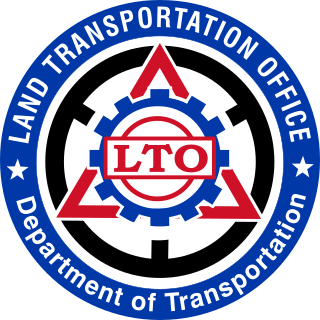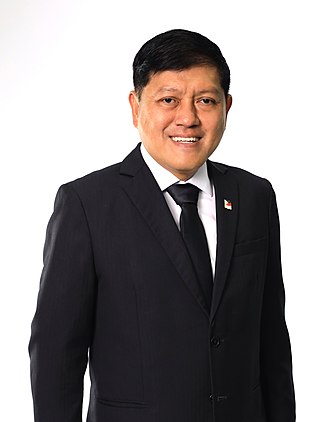
The U.S. Securities and Exchange Commission (SEC) is an independent agency of the United States federal government, created in the aftermath of the Wall Street Crash of 1929. The primary purpose of the SEC is to enforce the law against market manipulation.

The Sarbanes–Oxley Act of 2002 is a United States federal law that mandates certain practices in financial record keeping and reporting for corporations. The act,, also known as the "Public Company Accounting Reform and Investor Protection Act" and "Corporate and Auditing Accountability, Responsibility, and Transparency Act" and more commonly called Sarbanes–Oxley, SOX or Sarbox, contains eleven sections that place requirements on all U.S. public company boards of directors and management and public accounting firms. A number of provisions of the Act also apply to privately held companies, such as the willful destruction of evidence to impede a federal investigation.

The Securities Act of 1933, also known as the 1933 Act, the Securities Act, the Truth in Securities Act, the Federal Securities Act, and the '33 Act, was enacted by the United States Congress on May 27, 1933, during the Great Depression and after the stock market crash of 1929. It is an integral part of United States securities regulation. It is legislated pursuant to the Interstate Commerce Clause of the Constitution.

The Securities and Exchange Board of India (SEBI) is the regulatory body for securities and commodity market in India under the administrative domain of Ministry of Finance within the Government of India. It was established on 12 April 1988 as an executive body and was given statutory powers on 30 January 1992 through the SEBI Act, 1992.SEBI's establishment brought about a centralized regulatory framework, consolidating regulatory functions related to securities trading, issuance, and intermediation under one umbrella.
The Australian Securities and Investments Commission (ASIC) is an independent commission of the Australian Government tasked as the national corporate regulator. ASIC's role is to regulate company and financial services and enforce laws to protect Australian consumers, investors and creditors. ASIC was established on 1 July 1998 following recommendations from the Wallis Inquiry. ASIC's authority and scope are determined by the Australian Securities and Investments Commission Act 2001.

Banking regulation and supervision refers to a form of financial regulation which subjects banks to certain requirements, restrictions and guidelines, enforced by a financial regulatory authority generally referred to as banking supervisor, with semantic variations across jurisdictions. By and large, banking regulation and supervision aims at ensuring that banks are safe and sound and at fostering market transparency between banks and the individuals and corporations with whom they conduct business.

Securities regulation in the United States is the field of U.S. law that covers transactions and other dealings with securities. The term is usually understood to include both federal and state-level regulation by governmental regulatory agencies, but sometimes may also encompass listing requirements of exchanges like the New York Stock Exchange and rules of self-regulatory organizations like the Financial Industry Regulatory Authority (FINRA).

The Williams Act (USA) refers to 1968 amendments to the Securities Exchange Act of 1934 enacted in 1968 regarding tender offers. The legislation was proposed by Senator Harrison A. Williams of New Jersey.

The Professional Regulation Commission, otherwise known as the PRC, is a three-man commission attached to Department of Labor and Employment (DOLE). Its mandate is to regulate and supervise the practice of the professionals who constitute the highly skilled manpower of the country. As the agency-in-charge of the professional sector, the PRC plays a strategic role in developing the corps of professionals for industry, commerce, governance, and the economy.

The Land Transportation Office is an agency of the Philippine government under the Department of Transportation responsible for all land transportation in the Philippines. Functions of the LTO include the inspection and registration of motor vehicles, issuance of licenses and permits, enforcement of land transportation rules and regulations, and adjudication of traffic cases.

The Philippine Dealing & Exchange Corp. (PDEx) is a dealing exchange for major banks in the Philippines. The primary exchange of the country for all sectors is the Philippine Stock Exchange.
The Financial Industry Regulatory Authority (FINRA) is a private American corporation that acts as a self-regulatory organization (SRO) that regulates member brokerage firms and exchange markets. FINRA is the successor to the National Association of Securities Dealers, Inc. (NASD) as well as to the member regulation, enforcement, and arbitration operations of the New York Stock Exchange. The U.S. government agency that acts as the ultimate regulator of the U.S. securities industry, including FINRA, is the U.S. Securities and Exchange Commission (SEC).

The Office of the Solicitor General of the Philippines, formerly known as the Bureau of Justice, is an independent and autonomous office attached to the Department of Justice. The OSG is headed by Menardo Guevarra.

The Investor Protections and Improvements to the Regulation of Securities is a United States Act of Congress, which forms Title IX, sections 901 to 991 of the much broader and larger Dodd-Frank Wall Street Reform and Consumer Protection Act of 2010. Its main purpose is to revise the powers and structure of the Securities and Exchange Commission, credit rating organizations, and the relationships between customers and broker-dealers or investment advisers. This title calls for various studies and reports from the SEC and Government Accountability Office (GAO). This title contains nine subtitles.

The Bases Conversion and Development Authority is a government-owned and controlled corporation under the Office of the President of the Philippines. It is a government instrumentality vested with corporate powers under Republic Act 7227, signed into law by former President Corazon C. Aquino on March 13, 1992. The BCDA Charter was as amended by RA 7917 in 1995, and further amended by RA 9400 in 2007. The corporation is mandated to transform former US military bases into alternative productive civilian use.

The Anti-Money Laundering Council (AMLC) is the agency of the Government of the Philippines that is tasked to implement the provisions of Republic Act No. 9160, also known as the “Anti-Money Laundering Act of 2001” (AMLA), as amended, and Republic Act No. 10168, also known as the “Terrorism Financing Prevention and Suppression Act of 2012” (TFPSA).

The Bureau of Immigration, also known between 1972 and 1987 as the Bureau of Immigration and Deportation, is the immigration regulatory and control body of the Philippines. It was established by the Philippine Immigration Act in 1940, although a predecessor agency had existed as part of the Bureau of Customs since 1899.

The Philippine Competition Commission (PhCC) is an independent, quasi-judicial body formed to implement the Philippine Competition Act (Republic Act No. 10667). The PhCC aims to promote and maintain market competition within the Philippines by regulating anti-competition behavior. The main role of the PhCC is to promote economic efficiency within the Philippine economy, ensuring fair and healthy market competition.
The Dodd–Frank Wall Street Reform and Consumer Protection Act was created as a response to the financial crisis in 2007. Passed in 2010, the act contains a great number of provisions, taking over 848 pages. It targets the sectors of the financial system that were believed to be responsible for the financial crisis, including banks, mortgage lenders, and credit rating agencies. Ostensibly aimed at reducing the instability that led to the crash, the act has the power to force these institutions to reduce their risk and increase their reserve capital.

Emilio Benito Aquino is the current chairperson and CEO of the Securities and Exchange Commission (Philippines). He took office on June 7, 2018, and was appointed by then President Rodrigo Roa Duterte. Aquino is also the first CPA-Lawyer to be appointed as SEC Chairperson. Prior to assuming this role, he served as SEC Commissioner after his initial appointment on December 2, 2016.














